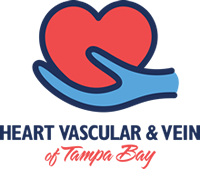Treatments For Unexplained Fainting
Exploring Various Treatment Options including Medication, Lifestyle changes, Pacemaker & Catheter Ablation
TALK TO US
These talking points will help you remember important information related to your fainting to share with your healthcare team.
REMEMBER TO SHARE:
- A description of your fainting episodes
- The number of fainting episodes you’ve had in the past two years
- What you were doing before you fainted
- Any concerns you have about fainting (e.g., safety, your job, driving)
- Any treatments you are receiving for fainting
- If your family has a history of undiagnosed fainting or sudden cardiac death
- How fainting is affecting your home and work life
REMEMBER TO ASK:
- Could my fainting be related to my heart? Why or why not?
- If you think my fainting may be heart-related, what tests are needed?
- Should I see a heart specialist doctor to help determine why I am fainting?
TREATMENT OPTIONS
The goal of treatment is to prevent another fainting episode. Sometimes, this can be accomplished with simple lifestyle changes. Other times, medication is needed.
LIFESTYLE CHANGES
To help control unexplained fainting episodes, simple lifestyle changes can be implemented:
- Avoiding potential triggers like hot environments, prolonged standing, dehydration, certain medications
- Consuming adequate fluid and salt
- Wearing support stockings
- Standing up more slowly
MEDICATIONS
If you continue to have fainting spells after making some lifestyle changes, your doctor may prescribe a medication. It is helpful to determine the cause of the fainting in order to recommend the most appropriate medicine for your condition.
PACEMAKER OR IMPLANTABLE CARDIOVERTER DEFIBRILLATOR (ICD)
If your healthcare team determines that your syncope is related to an abnormal heart rhythm, a medical device like a pacemaker or an implantable cardioverter defibrillator (ICD) may be implanted to control or reset the heart rhythm so it doesn’t beat too quickly or too slowly.
CATHETER ABLATION
During catheter ablation, radiofrequency energy is directed through a catheter inserted in an artery toward abnormal electrical pathways in the heart tissue that are causing an arrhythmia. This scars the tissue, normalizes the erratic electrical signals and corrects the arrhythmia.
Information on this site should not be used as a substitute for talking with your doctor. Always talk with your doctor about diagnosis and treatment information.
